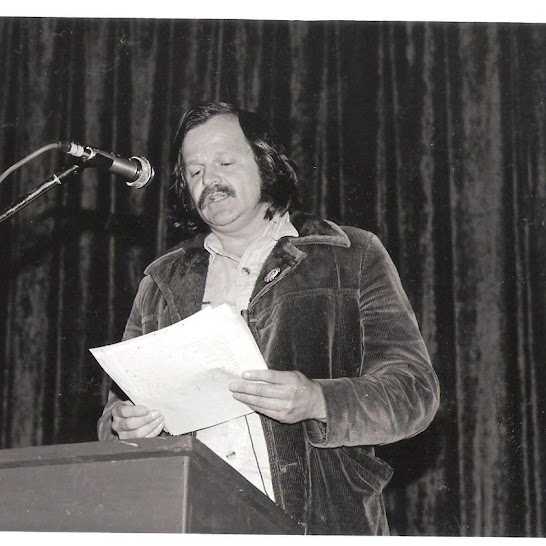A. D. Winans is a native San Francisco poet and writer. In 1958 he returned home from Panama and became part of the North Beach Beat era. He is the author of over sixty books of poetry and prose, including North Beach Poems, North Beach Revisited, San Francisco Poems, and The Holy Grail: The Charles Bukowski Second Coming Revolution. He edited and published Second Coming Press for 17 years, during which time he produced the 1980 Poets and Music Festival, honoring the poet Josephine Miles and Blues legend John Lee Hooker. Colin Wilson, Studs Terkel, James Purdy, Peter Coyote, Jack Hirschman, Jack Micheline, and Charles Bukowski have praised his work. His poetry and prose has been published in over 2,000 literary magazines and anthologies, including The American Poetry Review, City Lights Journal, Poetry Australia, the New York Quarterly, Beat Scene, Beatitude, Rattle, and The Outlaw Bible of American Poetry. In 2002 a song poem of his was performed at Tully Hall, NYC. In 2006 he was awarded a PEN Josephine Miles award for excellence in literature. In 2009 PEN Oakland presented him with a Lifetime Achievement Award. In 2015 he received a Kathy Acker Award in poetry and publishing. In 2010 Bottle of Smoke Press (BOS Press) published a book of his Selected Poems.
ADVICE FROM AN AGING POET
Live for the moment
the past is a ghost riding an empty train
sing like a hammer sings to a nail
tread softly thru the night where dreams
lay like land mines
ready to explode on the tattooed dawn
run barefoot with children in the park
listen to the sound of their breath
drown in the innocence of their eyes
ignore your enemies
false prophets drowning in quicksand
wrap your head in a song bag
lock your ego in the clothes closet
wear the eyes of an owl
write words soft as chalk
not like academic careful poets
in love with the business of poetry
wed to the immaculate chain of money
strip the flesh to the marrow
be a one-person quire
light up the sky like a million fireflies
kiss the face of the stars
GOING BACK IN TIME
I was looking at my scrapbook the other night while
listening to an old Dylan record
and there I was in my youth traveling from
California to Arizona and places further North
heading in so many directions
it was like being lost in the trick mirrors of the Fun House
at Play Land at the beach
and there were the young women then young girls
with free-flowing spirits
who gave their minds and bodies
at the slightest invitation
and nights too laying alone in bed in tangled sleep
feeling like a deer caught in barbed wire
or sitting hunched-over cold and disheveled
at the downtown Greyhound Bus Station
fighting off the eyes of leering men
who preferred boys to girls
now eighty-five and counting
I realize I was there and back so fast
like a train running out of track
returning home carrying my life in a knapsack
the days the months the years hung out to dry
like your mother's washing on a frail clothesline
THE TRUE POET
the true poet knows
words are second to action
weaker than blood spilled
on the battleground
of human rights and dignity
the true poet carries
the blood of the people in his veins
he does not speak in a rambling dialect
but in short sentences
he does not require a dictionary
to be understood
the true poet is steeped
in ancient tradition
he does not play politics
he is politics
the true poet is a tree with
far-reaching branches
he is the crust
on a loaf of bread
he is the dream within
a dream
he is the mother giving
a newborn baby
the milk of life
he is the thunder in a storm
his words a bolt of lightning
that lights up the sky
he does not beg applause
or make love to the microphone
he carries humility
like a mother holds her baby
in a warm embrace
he lives on the edge
his eyes are his tongue
his tongue his strength
he is a gardener planting seeds
in mind gardens
he is the first ray of sun
that breaks through the morning fog
his words walk the streets
run a marathon sleep with him
make love to him
the true poet does not die
but lives on through eternity
waits like cosmic dust
to be reborn again











